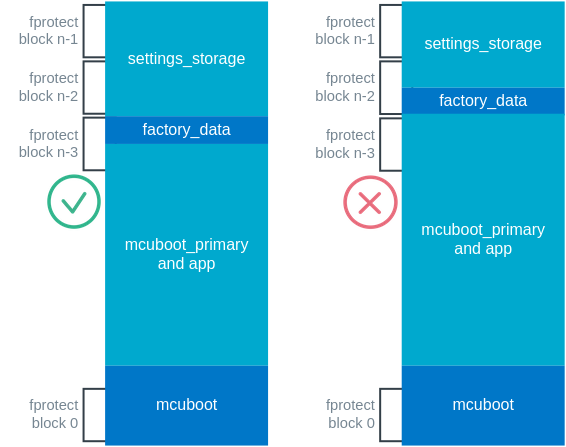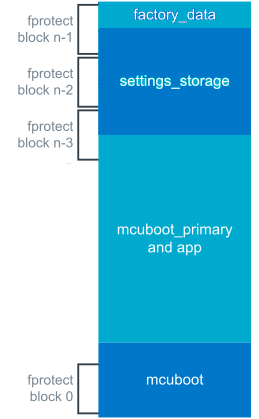I just ran into the issue that the settings_storage partition needs to be after the factory_data partition, and I asked myself why.
The problem is that, in case you need to expand the settings_storage partition in field, you would run into the problem that you need to move 2 partitions (factory_data and settings_storage), but if the settings_storage could be placed in front of the factory_data partition I would just need to redefine the start address. This restriction feels arbitrary.


